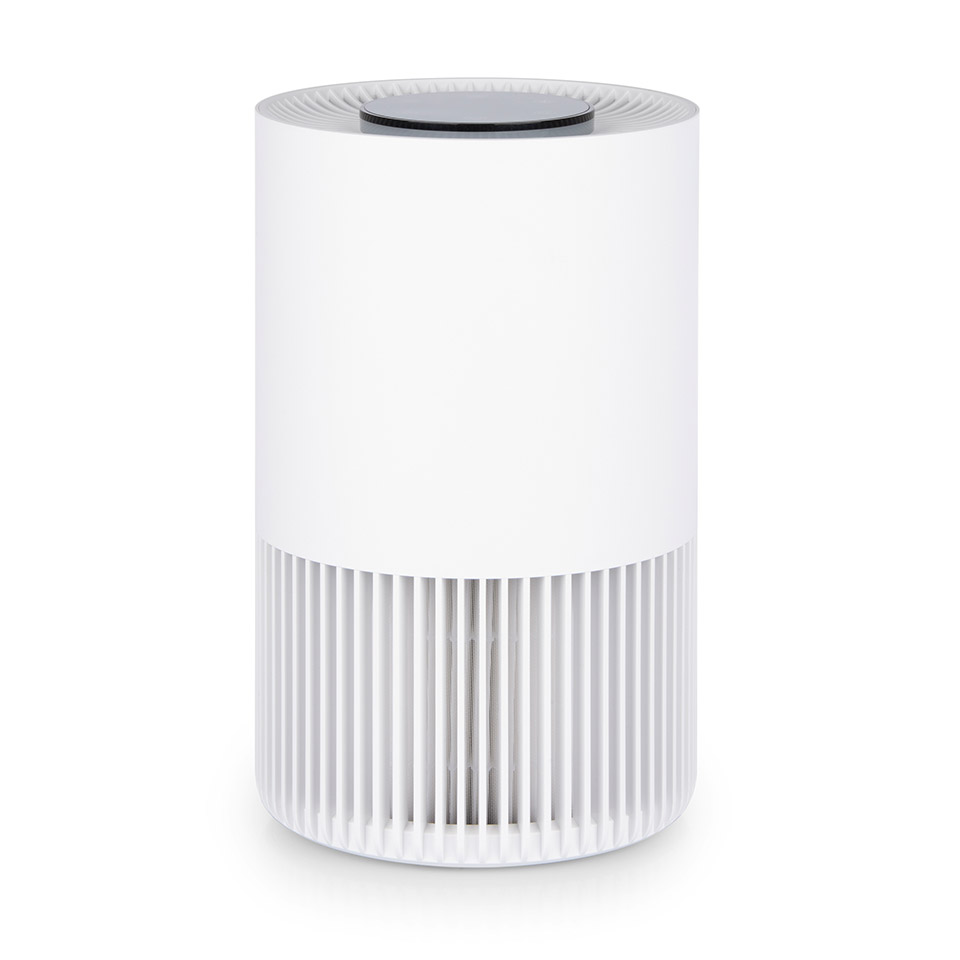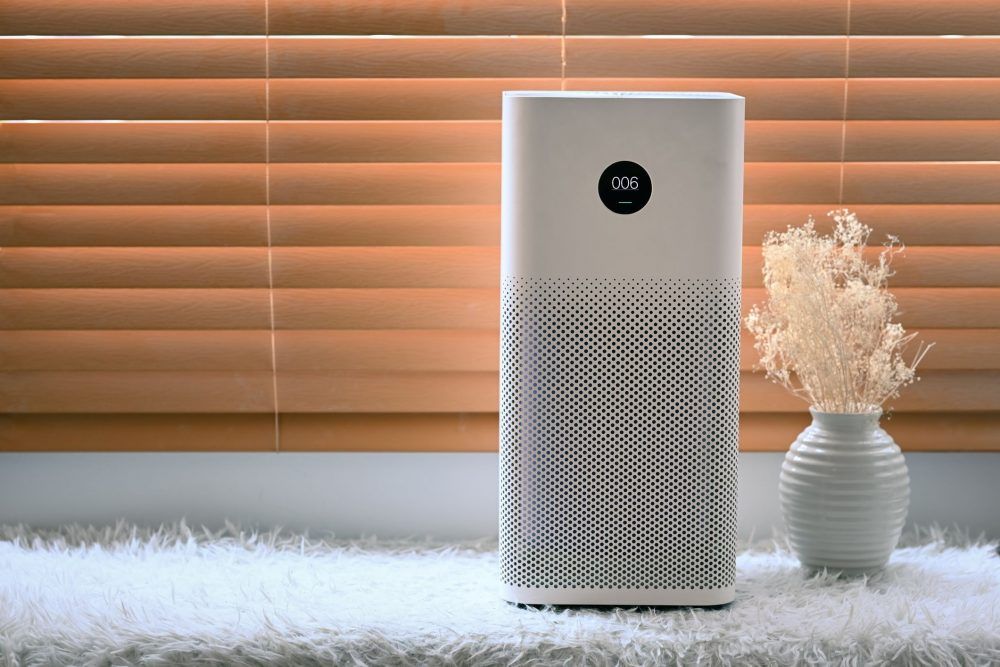Featured
Table of Contents
- – Comprehending Allergic Reactions and Triggers
- – Can Air Purifiers Assist With Allergies?
- – The Scientific Research Behind Air Purifiers ...
- – Are Air Purifiers Right for You? Variables to...
- – Making the Most of Air Purifiers for Allergies
- – Beyond Air Purifiers: A Multi-Pronged Techniqu...
- – Living a Breath Easier Life with Allergies

For allergy sufferers, springtime blossoms and fluffy animals can bring even more sniffles and sneezes than happiness. Indoor irritants like allergen, family pet dander, and plant pollen can ruin your breathing system, leaving you really feeling unpleasant. Air purifiers are usually touted as a remedy, appealing cleaner air and remedy for allergic reaction signs. However are air cleansers absolutely worth the financial investment for allergy victims? This extensive guide explores the scientific research behind air cleansers, their efficiency for allergic reactions, and the factors to take into consideration when making a choice.
Comprehending Allergic Reactions and Triggers
To recognize the role of air cleansers, let's first explore allergies and their triggers:
- The Allergic Reaction: Allergies occur when your immune system overreacts to a harmless compound, like pollen or dust termites. This reaction causes the launch of histamines, causing allergic reaction signs and symptoms like sneezing, coughing, itchy eyes, and a dripping nose.
- Common Allergens: Indoor irritants consist of allergen, animal dander, mold spores, pollen that wanders inside your home, and also roach irritants. These airborne particles can irritate your air passages and activate allergy signs.
Can Air Purifiers Assist With Allergies?
Air cleansers work by attracting in air, removing contaminants, and launching cleaner air back into the area. Here's just how they can potentially profit allergy sufferers:
- Capturing Irritants: HEPA (High-Efficiency Particulate Air) filters, a typical kind made use of in air purifiers, are extremely efficient at catching air-borne irritants like allergen, animal dander, and pollen. By eliminating these triggers from the air you take a breath, air cleansers can help in reducing allergy signs.
- Improved Air Top Quality: Air purifiers can also remove other irritants from the air, such as smoke, dirt, and volatile organic substances (VOCs) This overall improvement in air quality can be advantageous for allergy victims who are delicate to these additional triggers.
The Scientific Research Behind Air Purifiers and Allergies
Studies have actually shown that air cleansers can be useful in decreasing allergy signs and symptoms. Below's a take a look at some essential research study findings:
- A 2019 review published in the journal "Present Allergic reaction and Asthma Reports" ended that air purifiers with HEPA filters can be effective in lowering allergy signs and symptoms and improving top quality of life for individuals with allergic rhinitis (hay high temperature)
- A 2018 research released in the journal "Annals of Allergic Reaction, Bronchial Asthma & Immunology" discovered that making use of an air purifier with a HEPA filter in the room substantially minimized allergen irritant degrees and boosted rest high quality in individuals with bronchial asthma.
Nevertheless, it is necessary to keep in mind that research additionally recommends some constraints:
- Air Purifier Protection: Air cleansers are most effective in the room where they are put. Their influence on irritants in other parts of your home may be minimal.
- Severity of Allergies: While air purifiers can aid, they may not be a complete service for severe allergies. Drugs and other allergic reaction monitoring techniques may still be essential.
Are Air Purifiers Right for You? Variables to Take Into Consideration
Right here are some crucial elements to think about when choosing if an air purifier is worth it for your allergic reactions:
- Seriousness of Allergies: If your allergic reactions are mild and well-controlled with medication, an air purifier may not be necessary. However, for those with moderate to severe allergic reactions, an air purifier can be a useful device in handling signs.
- Sorts of Allergens: Think about the major triggers for your allergies. Air cleansers are most effective for airborne allergens like allergen, pet dog dander, and pollen. They may not be as useful for irritants like mold and mildew that grow on surface areas.
- Way of living and Environment: If you have pets, stay in a location with high pollen matters, or have concerns about indoor air quality, an air purifier can be valuable.

Making the Most of Air Purifiers for Allergies
If you choose to buy an air purifier for allergic reactions, here are some pointers for maximizing its effectiveness:
- Select a HEPA Filter: Search for an air purifier with a HEPA filter accredited to catch fragments as tiny as 0.3 microns.
- Right Size for the Room: Make sure the air purifier has a Clean Air Distribution Rate (CADR) that is appropriate for the dimension of the area you intend to utilize it in.
- Placement Matters: Put the air purifier in the room where you spend one of the most time, such as your bedroom.
- Regular Filter Maintenance: Change HEPA filters according to the manufacturer's guidelines to preserve optimal efficiency.
- Incorporate with Various Other Techniques: Air purifiers are not a one-size-fits-all remedy. Incorporate them with other allergic reaction administration methods like medicine, normal cleaning, and allergen-proof bed linens.
Beyond Air Purifiers: A Multi-Pronged Technique to Allergy Monitoring

While air cleansers can be a beneficial device in your allergy collection, they are not a miracle drug (If you're looking to buy an Air Purifier then Air Cleaners Australia is the best destination.). An extensive technique that combines air filtration with other methods is essential to attaining long-term allergic reaction alleviation. Below are some additional approaches to take into consideration:
- Medicine: Antihistamines, decongestants, and nasal corticosteroids, suggested by your doctor, can efficiently manage allergy signs and symptoms.
- Allergy Testing and Immunotherapy: Identifying your details allergens via allergy screening can lead the way for immunotherapy, a therapy that aids desensitize your immune system to allergens over time.
- Air Quality Management: Normal cleaning with a HEPA-filtered vacuum cleaner and allergen-specific cleaning items can substantially reduce allergen, family pet dander, and various other irritants in your home.
- Managing Moisture: Mold and mildew grows in damp atmospheres. Making use of a dehumidifier can assist control moisture levels and stop mold and mildew development, a typical interior allergen.
- Lifestyle Adjustments: If you have hatreds pollen, staying inside throughout height plant pollen seasons and bathing after spending time outdoors can aid decrease exposure.
- Bed linen and Surface Areas: Framing cushions and bed mattress in allergen-proof covers can substantially decrease allergen exposure. Regularly cleaning bed linens in hot water assists eliminate irritants.
Living a Breath Easier Life with Allergies
Remember, taking care of allergies is a constant procedure. By recognizing your triggers, implementing a multi-pronged technique, and potentially integrating an air purifier into your strategy, you can significantly minimize allergy signs and symptoms and breathe much easier.
Additional Factors To Consider:
- Consulting a Doctor: If your allergies are severe or not well-controlled with medication and lifestyle adjustments, seek advice from a specialist for tailored suggestions.
- Air High Quality Monitoring: Think about utilizing an air high quality screen to track irritant degrees in your home and change your administration techniques as necessary.
- Long-Term Investment: A high quality air purifier can be a long-lasting investment in your health and wellness and wellness.
By taking a proactive approach and taking on a combination of these strategies, you can create a much healthier and allergy-friendly setting, enabling you to appreciate a breath much easier life.
Table of Contents
- – Comprehending Allergic Reactions and Triggers
- – Can Air Purifiers Assist With Allergies?
- – The Scientific Research Behind Air Purifiers ...
- – Are Air Purifiers Right for You? Variables to...
- – Making the Most of Air Purifiers for Allergies
- – Beyond Air Purifiers: A Multi-Pronged Techniqu...
- – Living a Breath Easier Life with Allergies
Latest Posts
Understanding the Shift: Why Pymble is Phasing Out Gas
Are Air Purifiers Well Worth It for Allergies? Breathing Easier with Science-Backed Solutions
Battling the Mold Menace: Are Air Purifiers Worth It?
More
Latest Posts
Understanding the Shift: Why Pymble is Phasing Out Gas
Are Air Purifiers Well Worth It for Allergies? Breathing Easier with Science-Backed Solutions
Battling the Mold Menace: Are Air Purifiers Worth It?